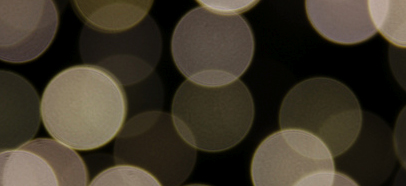Eurovision 2010: Pete Waterman on Radio 4’s Front Row
“know your material as best you can”
BBC Radio 4 Front Row presenter Mark Lawson spoke to Pete Waterman about Eurovision on Tuesday 9 March 2010.
Mark Lawson, presenter of Radio 4’s arts programme Front Row makes an interesting (and actually quite reassuring) point in the advice he offers journalists on how to conduct an arts interview. Impartiality is key to arts interviews, he says and this is illustrated perfectly when Front Row is reviewing the BBC’s own output, he says.
So, in the spirit of self-imposed impartiality I find the opportunity not to assess a piece of his work too delicious to ignore.
The illustrated cue for the pre-recorded interview with the UK’s Eurovision 2010 Puppet-Meister Pete Waterman wasn’t the best start.
After all, any UK Eurovision fan who tuned in to listen to the interview would have known that the UK’s last win wasn’t Bucks Fizz’s Making Your Mind Up, but Katrina and the Waves singing Love Shine a Light in 1997. And, on a point of style Jade didn’t so much ‘fail to win’ last year’s Eurovision, she came fifth and she was gorgeous and she continues to be gorgeous and we love her.
In some senses this did put Mr Lawson on the backfoot – although only amongst the hard-core cognascenti who like nothing more than to judge in a sneery, dismissive way.
But Waterman clearly came out better by the end of the interview when Lawson kept pressing the songwriter to reveal the name of the song, even going as far as asking him to sing a bit of it. Waterman was hardly going to do that. It had already been telegraphed Waterman had refused to reveal anything about the song which really means the TV production team wouldn’t allow it. Call me a cynic if you like.
“We haven’t exactly put the country’s strongest songwriters at the forefront of this for the last twenty years.”
What Waterman did instead was to underline his core principles. Don’t forget that his involvement in Eurovision raises his profile as much as it does the handful of youngsters (some of them shave every day, I understand) who are wriggling around on stage on Friday night. Waterman’s name should rise in Google ranks. People will on one level or other think about him, Stock Aitken and Waterman and the many songs they churned out during the 80s and 90s. This translates into record sales. Regardless of how we do at Eurovision, that’s a good thing for the Waterman brand.
And because of that back catalogue and because his tracks help 30 somethings diarise their own lives, the man does – even if he didn’t intend it to be this way – represent someone with a heritage. He’s someone who’s been through the system. Survived. Succeeded. Profited. He knows his stuff.
And because of all that he’s got a view on the world which underlines his maturity and in turn appeals to us long-in-the-tooth Eurovision fans.
“They think they know better than the writers. I think that’s disrespectful.”
There’s an air of “the trouble with young people today …” in some of the responses he gives Mark Lawson. That’s why he focuses on the important of strong melodic lines in the interview. That’s why he keeps banging on a central European song tradition rooted in classical music. He keeps talking about Mozart and Eine Kleine Nachtmusik presumably because what we’ll hear on Friday night is a rip of the chords Mozart used in his now ubiqitous work.
And if that’s the case regardless of whether you like the song or not, regardless of whether you like the performer of that song or not, Waterman’s intentions and workings-out have been made transparent. He reckons he’s done for Eurovision what he’s done successfully all his life. And that’s a good thing.
Just whatever you do Pete, don’t be tempted to pronounce “Celine Dion” as “Selane Deeon” as you did in this interview. Like talking about your interest in steam railways, you’ll only shoot yourself in the foot.
As for you Mr Lawson …


As a Eurovision fan and not being a regular recipient of Mark Lawson’s output, I have to say ML really got my back up in that interview. I think the factual inaccuracy at the start was pretty unforgivable really. I know that it’s something only Eurovision fans would know and would care about, but this is the BBC. It’s Radio 4. It’s their arts discussion programme. For me their authority on the arts has just been chucked out of the window. Next week he’ll be telling us that the RSC is going to do Shakespeare’s Duchess of Malfi. (OK, it’s not by Shakespeare, but it’s around the same time, that’s close enough, isn’t it?)
And then his incessant going on about revealing the song title, etc, including does it have the word “AND” in it….. forchrissake. As you way, fortunately PW gave out much better than he was given.
Anyway I’m still grumpy at not going to see it live on Friday. Didn’t get the tickets in the ballot. I’ve rearranged my Friday so that I couldn’t go now anyway. 😦
Your grumpiness is coming out. It has to be said.
I’m not entirely convinced about your reckoning that “their authority on the arts has been chucked out of the window” necessarily. But seeing as you are a license fee payer I’ll find you the telephone number you need to call to voice your feelings 😉
I’m not a Eurovision nut but even I know the UK won with that-Katrina-and-the-Waves-song. I might not have remembered its name spontaneously and certainly wouldn’t have known the year, but then I’m not the one doing an interview about Eurovision. Very shoddy lack of research. Bah.